The financial destruction of the State of Victoria over the past decade is astonishing.
In the Labor government’s first state budget in 2015, Victoria’s net debt was only $22.3 billion. It has since climbed to $155.5 billion and is projected over the budget forward estimates to hit $194 billion by 2028-29.
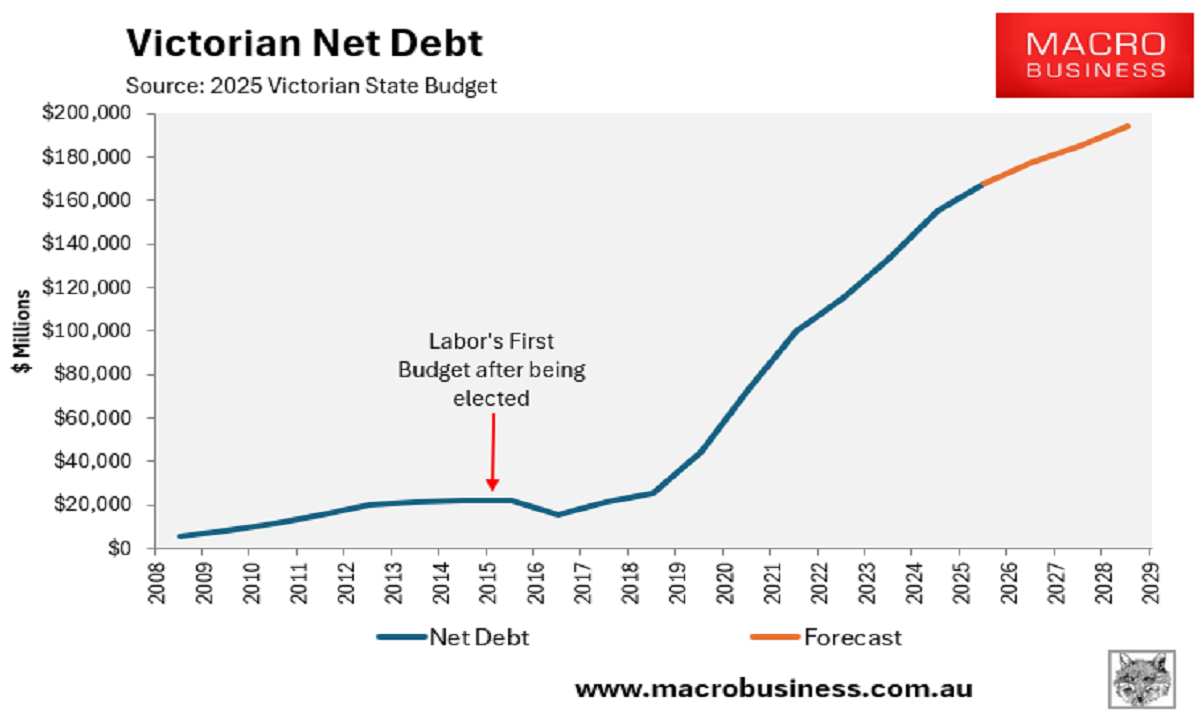
Victorian net debt per capita was only $3,600 in Labor’s first budget. It has since risen to $21,900 and is projected over the budget forward estimates to hit $25,500 by 2028-29.
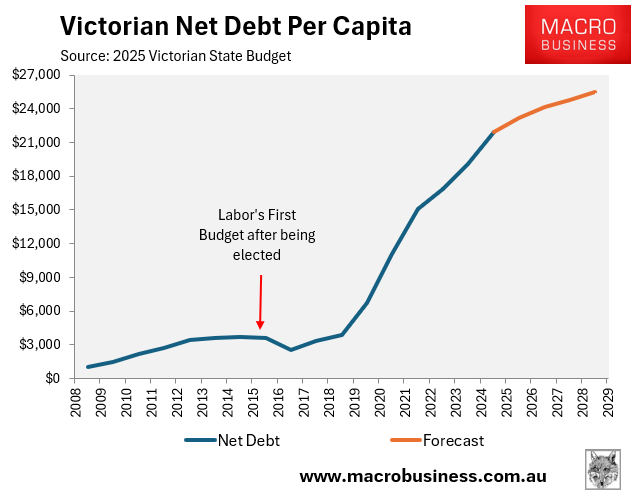
Victoria is currently paying $6.8 billion in annual interest costs. By 2028-29, Victoria’s interest bill is projected to hit $10.6 billion.
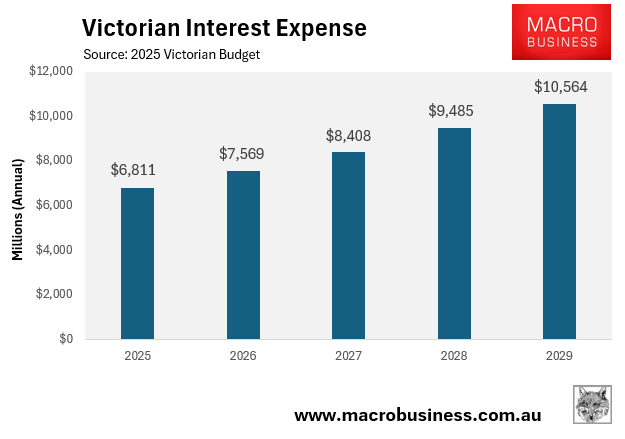
In per capita terms, Victoria’s annual interest expense is projected to rise from $959 in 2024-25 t0 $1,391 by 2028-29.
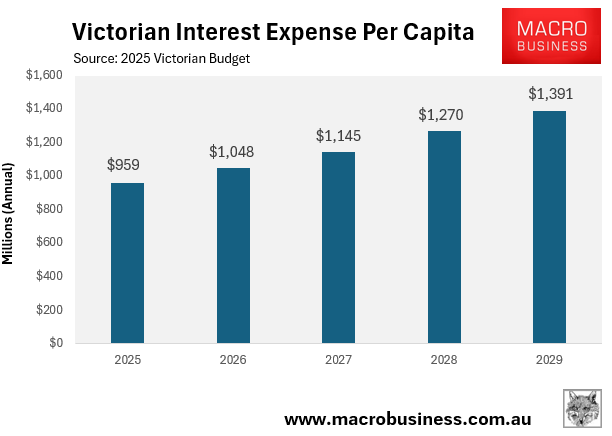
The major credit rating agencies, S&P, Moody’s and Fitch, have threatened to downgrade Victoria if it does not contain its debt. Doing so would increase the state’s already ballooning interest bill.
One of the main reasons why Victoria’s budget is in such a precarious position is because of the blowout in public servant wage costs, which have regularly exceeded budget projections.
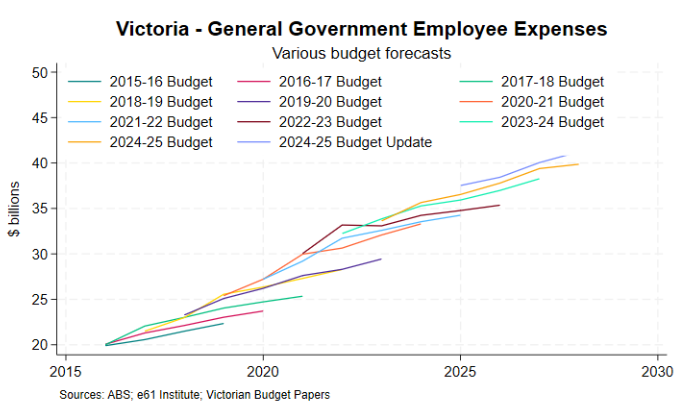
Wages are the state’s single biggest expense. In the 15 years preceding 2022-23, Victoria’s public sector headcount increased by 59%, outpacing the state’s population growth of 29%.
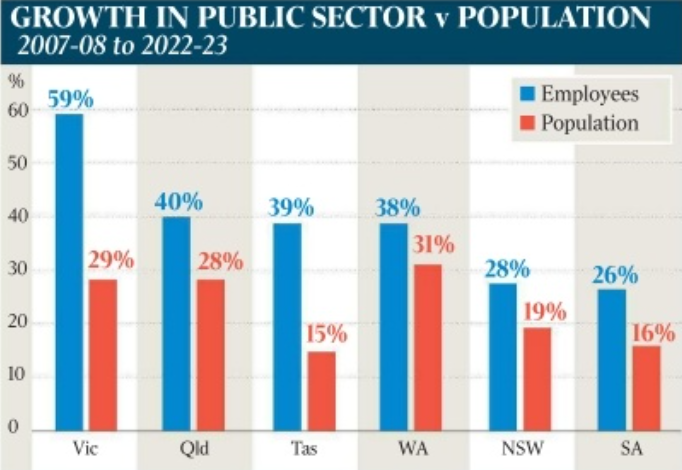
Source: The Australian
During the same 15-year period, the state’s public servant salary bill grew by 152%, outpacing all other Australian states.
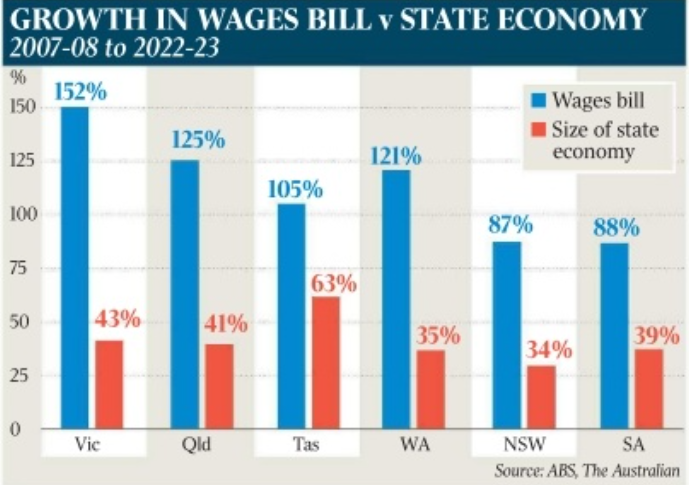
Source: The Australian
Victoria’s wage bill was $19.5 billion in the 2014-15 financial year. This week’s federal budget projects that wage costs will increase to around $44 billion by 2028-29.
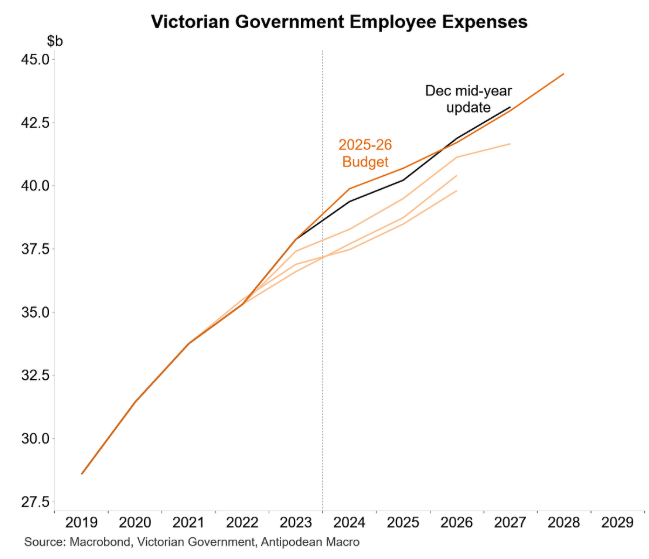
To exacerbate the situation, most major projects in Victoria have significantly exceeded their timelines and budgets.
For example, a recent report by the Victorian Auditor-General’s Office revealed that the costs of 113 large projects increased by $11 billion since last year.
Almost half (53) of the 113 significant projects evaluated by the Auditor-General’s Office saw an increase in total expected investment.
A decade of bureaucratic waste and mismanagement has buried Victorians in debt.

